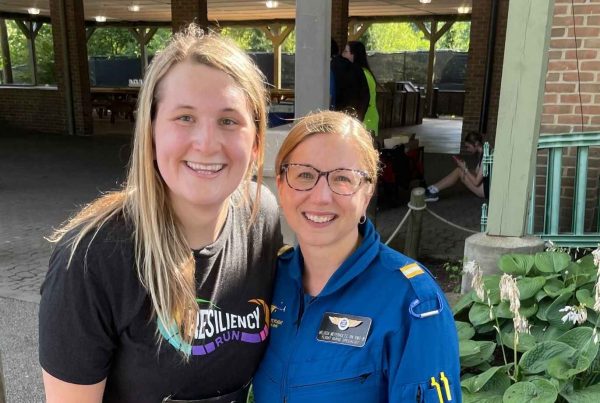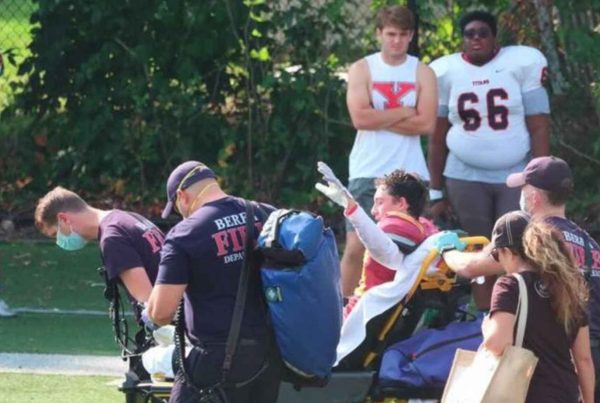How to Prevent Animal Bites
Contributed by: Anthony Zalewski, RN, BSN, MHA, Injury Prevention and Outreach Coordinator for The MetroHealth Division of Trauma and L. Hunter Reese, PharmD, BCPS, Clinical Pharmacy Specialist – Emergency Medicine at the MetroHealth System
Exploring parks is a wonderful way for both your family and pet to get some exercise while enjoying nature. We all love being outdoors, but it’s important to stay safe while having fun. Here are a few tips to keep you safe, plus what to do if you’re unexpectedly bitten.
Children are naturally curious, and if cute and cuddly creatures cross their paths, their instinct may be to pet them. If you and your children encounter a wild animal or an unknown dog or cat in the park, it’s best to watch from a distance and keep your hands to yourselves.
According to the Centers for Disease Control (CDC) and the Humane Society, there are approximately 4.5 million dog bites every year in the U.S. – and 51% of the victims are young children. Wild animal bites are far less common and account for only 1% of all emergency department visits each year.
Children are very active. Their sudden movements may cause an animal to bite or scratch out of fear, even if it’s a friendly dog or cat, according to Anthony Zalewski, RN, BSN, MHA, Injury Prevention and Outreach Coordinator for The MetroHealth Division of Trauma.
It’s super important to remind your kids never to touch wild animals. “You don’t know what they’ve been exposed to and what diseases they may carry,” Zalewski said. If you see an animal acting aggressively or weirdly, contact your local police, animal control or wildlife authorities. When it comes to pet dogs, make sure your kids know how to approach them safely—like asking before petting and allowing the dog to get to know you by letting them sniff you first. Staying calm and respectful around animals can help keep everyone safe from bites!
How to Treat Animal Bites
- Call your Primary Care Provider. Tell your provider if they were bitten by a wild animal, a pet whose vaccination status you know or a stray animal. Their treatment recommendations depend on this information.
- Wash the wound for 15 minutes. Use soap and water to wash the area constantly for 15 minutes. This is a good thing to do while waiting to talk to your Primary Care Provider.
- Follow the advice of your Primary Care Provider. They may want to prescribe antibiotics or vaccinations, see your child in person, or send you to the Emergency Department.
You should go to the Emergency Department if you:
- Have been bitten by a wild animal or animal whose rabies vaccination status is unknown to you. You will need to be treated for rabies exposure.
- Have been bitten by a dog that has a strong bite because they can cause a crush injury to tissues or bones.
- Have an open wound or lots of bleeding. You may need stitches or antibiotics.
- Have any of the following symptoms in the days after a bite because these might be signs of infection:
- Drainage, such as brown liquid or pus
- Red streaks from the bite that follow path of blood vessels
- Inability to use that area
- Increased pain
- Fevers
- The area around the bite is warm to the touch
Remember, we all love our furry friends, and by being safe and respectful around animals, we can make sure everyone stays happy and healthy!
We Are Here if You Need Us
MetroHealth has Emergency Departments at our Brecksville, Cleveland Heights, Parma and Main Campus Medical Center locations. For more information, visit https://www.metrohealth.org/emergency-room.
What is Rabies?
Rabies is a virus that attacks the brain and spinal cord. People get rabies through the bite of an infected animal or exposure to saliva (spit) from an exposed animal. Dogs, bats, raccoons, and skunks are most commonly affected by rabies.
Why You Need Treatment
Rabies is almost always fatal, which is why it’s crucial to seek emergency care immediately if you’re bitten by a wild animal or a stray dog or cat, advises L. Hunter Reese, PharmD, Emergency Medicine Pharmacy Specialist
You should never wait for symptoms to appear, as once they do, treatment is no longer effective. MetroHealth’s four Emergency Departments provide the necessary post-exposure treatment for rabies, including a tetanus shot, Rabies Immune Globulin, and the Rabies Vaccine.
“If you’ve been bitten, contact your doctor or visit the Emergency Department within an hour,” advises Dr. Reese. “When in doubt, it’s always best to have an animal bite checked out.”











